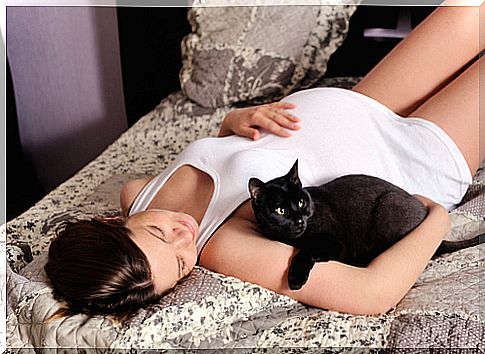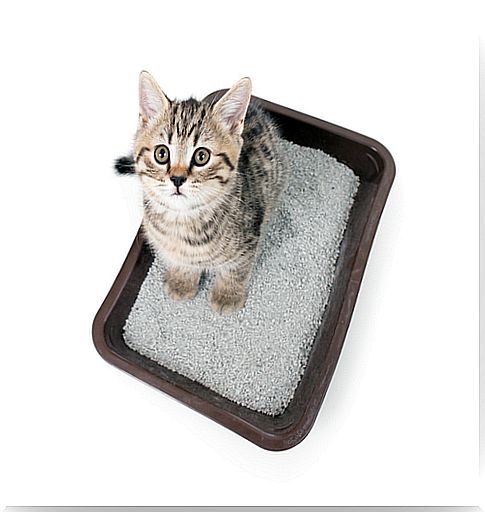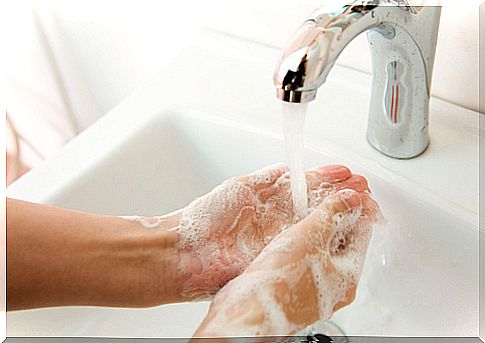Cats And Pregnancy: Are They Really Incompatible?

Can a cat be kept indoors during pregnancy? Surely. However, it is a fact that when a woman is pregnant the risk of contracting diseases is higher. Some ailments may be minor or insignificant, others have very important effects. Certainly the developing fetus is more sensitive to some diseases. One of these is toxoplasmosis, a disease that is transmitted through contact with cat feces.
Toxoplasmosis

Toxoplasmosis is a disease that pregnant women need to pay close attention to. It is caused by a parasite, the protozoan Toxoplasma gondii. Toxoplasma infection acquired during pregnancy can cause congenital diseases in the unborn child or even involuntary abortion.
Pregnant women who came into contact with Toxoplasma before pregnancy have already developed antibodies against this parasite within themselves, so they are not at risk.
Cats are the only animal species that can spread Toxoplasma through their feces. Only a small percentage of cats release this type of parasite at some point in their life, but the probability is greater if the animal is fed raw meat or if it hunts.
Toxoplasma remains in cat feces for 24 hours before becoming infectious. A human cannot become infected with Toxoplasma through fresh feces. This point is the key to greatly reducing the risk of cat infection, i.e. cleaning the sandbox every day.
Any infection that can have serious effects on the fetus must be taken seriously.
Many women who are expecting a baby are advised to get away from their cats. However, there’s no reason why they should give up their beloved felines. There are basic measures that can be applied to considerably reduce the risk of transmission from Toxoplasma.
Measures to reduce the risk of toxoplasmosis

Pregnant women should not have contact with the litter box or any other cat waste. If possible, let others clean up the sand.
If a woman is pregnant and has to clean the sandbox, she has to do it every day, so that the Toxoplasma does not have time to activate and become infectious.
The litters should be washed and cleaned with boiling water on a regular basis.
Make sure your cat’s fur doesn’t get contaminated with its own feces. This is especially important if the cat has long fur, which may hold feces around the anus, or in the case of older sick or obese cats who have difficulty grooming themselves properly.
Keep the cat indoors. Outdoor cats are more likely to transmit toxoplasmosis.
Do not feed your cat raw meat.
If you need to change the cat’s sand, put on a pair of rubber gloves and immediately wash your hands with soap.
Hands should also be washed thoroughly after handling raw fruit and vegetables or if you have come into contact with the earth, for example during a gardening job.
Cook all types of meat at the recommended temperature and scrupulously wash before and after the kitchen counter.
Take the cat to the vet to have it tested and determined if it is infected with Toxoplasma. If the test is positive for toxoplasmosis, you should move it to another location for about six weeks, until it stops being contagious.
Fortunately, the chances of getting toxoplasmosis in pregnancy are low these days. If you have already had this disease, know that it cannot be contracted a second time. Nonetheless, to dispel any fears, get blood tests to determine if you are already immune to the disease. In general, if you already had a cat as a child or a few years ago, you may have come into contact with toxoplasmosis without realizing it.
If the results of the tests establish that you are immune to it, then do not worry : however, take the precautions mentioned above and prepare to receive the new family member, your baby is safe.









